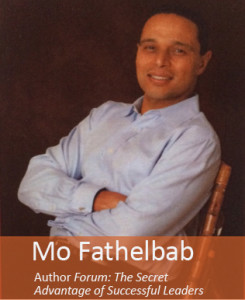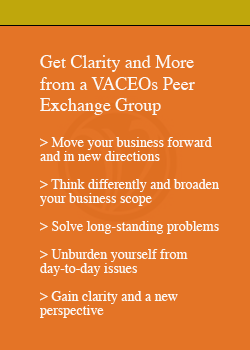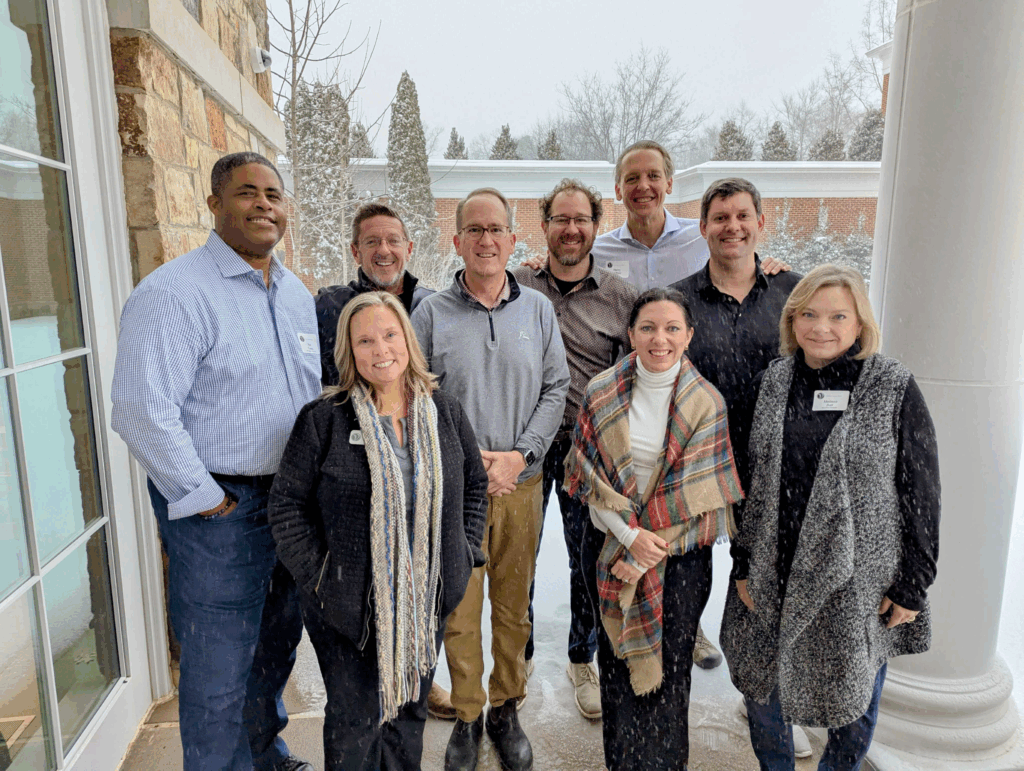Imagine seated to your right is someone who has made the Inc. 5000 list not once, but EIGHT times. Seated around the table to your left are several RVA 25 CEOs representing the technology, consumer products and staffing industries. Each is focused on your question, issue or opportunity. You finally realize: you are not alone. This is the feeling each VACEOs member has experienced during a Roundtable or Forum session.
 All new VACEOs members are assigned to a peer roundtable. It quickly becomes a safe haven – a place to vent, ask questions, release fears and build life-long friendships.
All new VACEOs members are assigned to a peer roundtable. It quickly becomes a safe haven – a place to vent, ask questions, release fears and build life-long friendships.
“Peer roundtables are important because they provide a unique opportunity to share and learn with a group of peers in a completely safe environment,” says Mo Fathelbab, Forum Resources Network president and author of Forum: The Secret Advantage of Successful Leaders.
“As a CEO, it’s often lonely at the top. You can’t share everything with your employees, partners, board members or investors. Members of a Roundtable have no personal interest in your decisions,” he adds.
Forum: The Secret Advantage of Successful Leaders explains Roundtable methodology and is required reading for all new VACEOs members.
“The Council’s Roundtables have been designed intentionally around the principles found in Fathelbab’s book,” says Scot McRoberts, executive director, VACEOs. “Each member is trained about our disciplined meeting process, which follows very specific language and meeting protocols. This is to ensure that every member gets the most out of the Roundtable or Forum meetings.”
“NO ADVICE” POLICY (GESTALT LANGUAGE PROTOCOL) IS KEY
All VACEOs Roundtables adhere to a set of ground rules by which the group must abide. Chief among them is strict adherence to a code of confidentiality and Gestalt Language Protocol.
“The Gestalt Protocol is based on the theory that as children we were always told what to do by our parents,” explains Fathelbab. “As a result, adults – especially entrepreneurs – resent being told what to do by anyone.”
The guiding principle of the protocol is to never give advice, but to share related experiences instead. Participants are careful to avoid phrases such as “If I were you…” when another group member presents his or her challenge. Learning to participate in a group this way takes effort and practice, but it’s essential for creating a safe, rewarding experience.
“Advice can be flat-out wrong,” says Fathelbab. “It can be judgmental. Advice creates an unsafe environment in a Roundtable, Peer Exchange Group or Forum. Each of us is best equipped to solve our own problem. The best anyone can do is to share their experience, allowing the person with the problem to glean from that experience what is best for him or her.”
“Sharing experiences allows members of a group to get closer by learning more about one another,” he continues. “By contrast, giving advice to a single member robs the group of all of the stories that can be so educational and socially bonding.”
ARE YOU IN NEED OF A SAFE HAVEN?
The Council is one of a handful of independent regional organizations of its kind in existence. Members enjoy the benefits of networking, camaraderie and the “safe haven” found in their roundtables and in their interactions with 180 other CEOs. Ready to learn more? View VACEOs membership info today.





